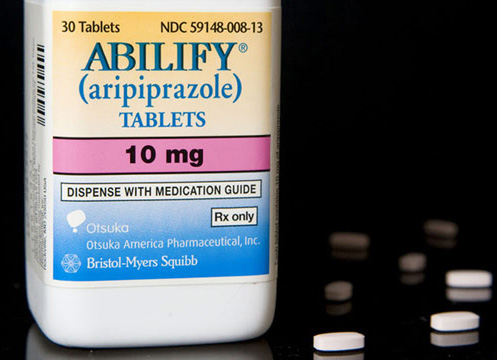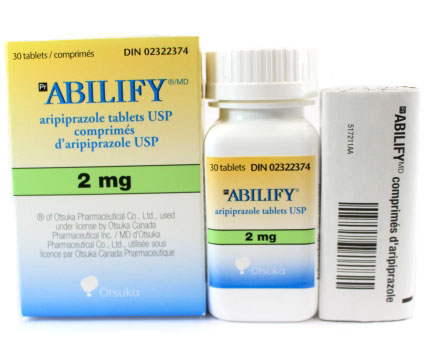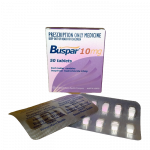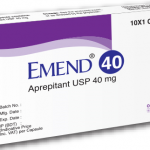Aripiprazole (Abilify): Uses, Benefits, How it works, Side Effects

What Is Aripiprazole (Abilify) And What Does It Treat?
Abilify (aripiprazole) is an antipsychotic medication that works in the brain to treat schizophrenia. It is also known as a second-generation antipsychotic (SGA) or atypical antipsychotic. Aripiprazole (Abilify) rebalances dopamine and serotonin to improve thinking, mood, and behavior.
Symptoms of schizophrenia include:
• Hallucinations — imagined voices or images that seem real
• Delusions — beliefs that are not true (e.g., other people are reading your thoughts)
• Disorganized thinking or trouble organizing your thoughts and making sense
• Little desire to be around other people
• Trouble speaking clearly
• Lack of motivation
Aripiprazole (Abilify) may help some or all of these symptoms.
Aripiprazole (Abilify) is also FDA approved for the following indications:
• Acute treatment of manic or mixed episodes of bipolar disorder (when used alone or with lithium or valproate)
• Maintenance (long-term) treatment of bipolar disorders
• Adjunctive treatment of major depressive disorders. This means Aripiprazole (Abilify) is used in addition to an antidepressant to help treat depression.
• Irritability associated with autistic disorders
• Tourette syndrome
• Acute treatment of agitation in schizophrenia and bipolar disorder
This medication sheet will focus primarily on schizophrenia. Find more information about bipolar disorder, depression, and autism spectrum disorders here.
Aripiprazole (Abilify) may also be helpful when prescribed “off-label” for borderline personality disorder or drug-induced hyperprolactinemia (elevated prolactin levels caused by other antipsychotics). “Off-label” means that it hasn’t been approved by the Food and Drug Administration for this condition. Your mental health provider should justify his or her thinking in recommending an “off-label” treatment. They should be clear about the limits of the research around that medication and if there are any other options.
How Long Does It Take For Aripiprazole (Abilify) To Work?
It is very important to tell your doctor how you feel things are going during the first few weeks after you start taking Aripiprazole (Abilify). It will probably take several weeks to see big enough changes in your symptoms to decide if Aripiprazole (Abilify) is the right medication for you.
Antipsychotic treatment is generally needed lifelong for persons with schizophrenia. Your doctor can best discuss the duration of treatment you need based on your symptoms and illness.
• Hallucinations, disorganized thinking, and delusions may improve in the first 1-2 weeks
• Sometimes these symptoms do not completely go away
• Motivation and desire to be around other people can take at least 1-2 weeks to improve
• Symptoms continue to get better the longer you take Aripiprazole (Abilify)
• It may take 2-3 months before you get the full benefit of Aripiprazole (Abilify)
What is good about Aripiprazole (Abilify)?
There are several benefits of Aripiprazole (Abilify) according to studies they include:
Schizophrenia
Studies showed that Abilify is effective at treating symptoms of schizophrenia using standard rating scales (such as the Positive and Negative Syndrome Scale, PANSS).
In studies of 1,203 adults, Abilify was more effective than placebo (a dummy treatment) at reducing symptoms. In another adult study, Abilify was as effective as haloperidol, another antipsychotic medicine, in preventing symptoms from returning over 1 year.
Abilify has also been studied in 302 adolescents aged between 13 and 17, with results showing Abilify to be more effective than placebo.
A study in 544 patients treated by injection for agitation and disturbed behavior showed that improvement with Abilify over 24 hours was greater than with placebo and similar to that with haloperidol.
Bipolar I disorder
Studies in bipolar I disorder showed that Abilify is effective at treating manic episodes using standard measurements such as the Young-Mania Rating Scale (YMRS) scale.
In 4 out of 5 studies in 1,900 adults, Abilify was more effective than placebo at reducing manic symptoms, with two of these studies showing that Abilify has a similar effect to haloperidol and to lithium. Other studies showed that Abilify was more effective than placebo at preventing manic episodes in previously treated adults for up to 74 weeks, and when it was used as an add-on to existing treatment.
A study in 296 children and adolescents showed that Abilify was more effective than placebo at reducing the manic symptoms in patients aged 13 years and older.
Finally, a study in 291 patients treated by injection for agitation and disturbed behavior showed that improvement with Abilify was greater after 2 hours than with placebo and similar to that with lorazepam (another medicine for treating agitation).

What Is The Most Important Information I Should Know About Aripiprazole (Abilify)?
Schizophrenia requires long-term treatment. Do not stop taking Aripiprazole (Abilify), even when you feel better. With input from you, your health care provider will assess how long you will need to take the medicine.
Missing doses of Aripiprazole (Abilify) may increase your risk for a relapse in your symptoms. Do not stop taking Aripiprazole (Abilify) or change your dose without talking to your healthcare provider first. For Aripiprazole (Abilify) to work properly, it should be taken every day as ordered by your healthcare provider.
Are There Specific Concerns About Aripiprazole (Abilify) And Pregnancy?
If you are planning on becoming pregnant, notify your healthcare provider to best manage your medications. People living with schizophrenia who wish to become pregnant face important decisions. This is a complex decision since untreated schizophrenia has risks to the fetus, as well as the mother. It is important to discuss the risks and benefits of treatment with your doctor and caregivers.
Antipsychotic use during the third trimester of pregnancy has a risk for abnormal muscle movements (extrapyramidal symptoms [EPS]) and/or withdrawal symptoms in newborns following delivery. Symptoms in the newborn may include agitation, feeding disorder, hypertonia, hypotonia, respiratory distress, somnolence, and tremor; these effects may be self-limiting or require hospitalization.
In general, infants exposed to SGAs via breast milk should be monitored weekly for the first month of exposure for symptoms, such as appetite changes, insomnia, irritability, or lethargy.
Caution is advised with breastfeeding since Aripiprazole (Abilify) does pass into breast milk.
What Should I Discuss With My Healthcare Provider Before Taking Aripiprazole (Abilify)?
• Symptoms of your condition that bother you the most
• If you have thoughts of suicide or harming yourself
• Medications you have taken in the past for your condition, whether they were effective or caused any adverse effects
• If you ever had muscle stiffness, shaking, tardive dyskinesia, neuroleptic malignant syndrome, or weight gain caused by a medication
• If you experience side effects from your medications, discuss them with your provider. Some side effects may pass with time, but others may require changes in the medication
• Any psychiatric or medical problems you have, such as heart rhythm problems, long QT syndrome, heart attacks, diabetes, high cholesterol, or seizures
• If you have a family history of diabetes or heart disease
• All other medications you are currently taking (including over the counter products, herbal and nutritional supplements) and any medication allergies you have
• Other non-medication treatments you are receiving, such as talk therapy or substance abuse treatment. Your provider can explain how these different treatments work with the medication
• If you are pregnant, plan to become pregnant, or are breast-feeding
• If you smoke, drink alcohol, or use illegal drugs
How Should I Take Aripiprazole (Abilify)?
Aripiprazole (Abilify) tablets and suspension are usually taken 1 time per day with or without food. Typically, patients begin at a low dose of medicine and the dose is increased slowly over several weeks.
The oral dose of Aripiprazole (Abilify) usually ranges from 2 mg to 30 mg taken once daily. The dose of Aripiprazole (Abilify) maintena extended-release injection ranges from 300 mg to 400 mg given once monthly; the dose of Aripiprazole (Abilify) lauroxil extended-release injection ranges from 441 mg to 1064 mg — depending on the dose, it is given once per month, every 6 weeks, or every 2 months. Aripiprazole (Abilify) maintena requires a two-week oral medication overlap; Aripiprazole (Abilify) lauroxil requires a three-week oral overlap. Aripiprazole (Abilify) lauroxil Initio is typically given after an oral dose of Aripiprazole (Abilify) along with an Aripiprazole (Abilify) lauroxil injection – this allows for a one-day initiation and does not require further oral overlap. Only your healthcare provider can determine the correct formulation and dose for you.
Use a calendar, pillbox, alarm clock, or cell phone alert to help you remember to take your medication. You may also ask a family member or a friend to remind you or check in with you to be sure you are taking your medication.
What Happens If I Miss A Dose Of Aripiprazole (Abilify)?
If you miss a dose of Aripiprazole (Abilify), take it as soon as you remember, unless it is closer to the time of your next dose. Do not double your next dose or take more than what is prescribed. If you miss an injection, call your doctor or pharmacist right away. Discuss this with your healthcare provider.
What Should I Avoid While Taking Aripiprazole (Abilify)?
Avoid drinking alcohol or using illegal drugs while you are taking Aripiprazole (Abilify). They may decrease the benefits (e.g., worsen your confusion) and increase adverse effects (e.g., sedation) of the medication.
What Happens If I Overdose With Aripiprazole (Abilify)?
If an overdose occurs, call your doctor or 911. You may need urgent medical care. You may also contact the poison control center at 1-800-222-1222. A specific treatment to reverse the effects of Aripiprazole (Abilify) does not exist.
What Are Possible Side Effects Of Aripiprazole (Abilify)?
Aripiprazole (Abilify) may cause serious side effects including:
• chills,
• confusion,
• cough,
• difficulty breathing,
• dry mouth, and
• fast or uneven heartbeats,
• feeling lightheaded,
• feeling restless,
• fruity breath odor
• high fever,
• increased thirst,
• increased urination,
• mask-like appearance of the face,
• mouth sores,
• seizure (convulsions),
• severe agitation or distress,
• skin sores,
• sore throat,
• speech problems,
• stiff or rigid muscles,
• sweating,
• thoughts of suicide or self-harm,
• tremors (shaking),
• trouble swallowing,
• twitching or uncontrollable movements of your eyes, lips, tongue, face, arms or legs,
Get medical help right away, if you have any of the symptoms listed above.
The most common side effects of Aripiprazole (Abilify) include:
• anxiety,
• constipation,
• dizziness,
• drowsiness,
• feeling restless,
• feeling tired,
• headache,
• increased appetite,
• nausea,
• sleep problems (insomnia),
• sore throat
• stuffy nose, and
• uncontrolled muscle movements,
• vomiting,
• weight gain,
Tell the doctor if you have any side effect that bothers you or that does not go away.
These are not all the possible side effects of Aripiprazole (Abilify). For more information, ask your doctor or pharmacist.
Call your doctor for medical advice about side effects. You may report side effects to FDA at 1-800-FDA-1088.
Is Aripiprazole (Abilify) a safe medication?
Aripiprazole (Abilify) may increase the blood levels of a hormone called prolactin. Side effects of increased prolactin levels include females losing their period, production of breast milk, and males losing their sex drive or possibly experiencing erectile problems. Long-term (months or years) of elevated prolactin can lead to osteoporosis or increased risk of bone fractures.
Some people may develop muscle-related side effects while taking Aripiprazole (Abilify). The technical terms for these are “extrapyramidal symptoms” (EPS) and “tardive dyskinesia” (TD). Symptoms of EPS include restlessness, tremor, and stiffness. TD symptoms include slow or jerky movements that one cannot control, often starting in the mouth with tongue rolling or chewing movements.
Temperature regulation: Impaired core body temperature regulation may occur; caution with strenuous exercise, heat exposure, and dehydration.
Second-generation antipsychotics (SGAs) increase the risk of weight gain, high blood sugar, and high cholesterol. This is also known as metabolic syndrome. Your healthcare provider may ask you for a blood sample to check your cholesterol, blood sugar, and hemoglobin A1c (a measure of blood sugar over time) while you take this medication.
SGAs have been linked with a higher risk of death, strokes, and transient ischemic attacks (TIAs) in elderly people with behavior problems due to dementia.
All antipsychotics have been associated with the risk of sudden cardiac death due to an arrhythmia (irregular heartbeat). To minimize this risk, antipsychotic medications should be used in the smallest effective dose when the benefits outweigh the risks. Your doctor may order an EKG to monitor for an irregular heartbeat.
Neuroleptic malignant syndrome is a rare, life-threatening adverse effect of antipsychotics that occurs in <1% of patients. Symptoms include confusion, fever, extreme muscle stiffness, and sweating. If any of these symptoms occur, contact your healthcare provider immediately.
All antipsychotics can cause sedation, dizziness, or orthostatic hypotension (a drop in blood pressure when standing up from sitting or lying down). These side effects may lead to falls which could cause bone fractures or other injuries. This risk is higher for people with conditions or other medications that could worsen these effects. If falls or any of these symptoms occur, contact your healthcare provider.
The U.S. Food and Drug Administration (FDA) is warning that compulsive or uncontrollable urges to gamble, binge eat, shop, and have sex have been reported with the use of Aripiprazole (Abilify). These uncontrollable urges were reported to have stopped when the medicine was discontinued or the dose was reduced. These impulse-control problems are rare, but they may result in harm to the patient and others if not recognized.
Are There Any Risks For Taking Aripiprazole (Abilify) For Long Periods Of Time?
Tardive dyskinesia (TD) is a side effect that develops with prolonged use of antipsychotics. Medications such as Aripiprazole (Abilify) have been shown to have a lower risk of TD compared to older antipsychotics, such as Haldol (haloperidol). If you develop symptoms of TD, such as grimacing, sucking, and smacking of lips, or other movements that you cannot control, contact your healthcare provider immediately. All patients taking either first or second-generation antipsychotics should have an Abnormal Involuntary Movement Scale (AIMS) completed regularly by their healthcare provider to monitor for TD.
Second-generation antipsychotics (SGAs) increase the risk of diabetes, weight gain, high cholesterol, and high triglycerides. (See “Serious Side Effects” section for monitoring recommendations.
Summary Of FDA Black Box Warnings
Increased mortality in elderly patients with dementia-related psychosis
Both first-generation (typical) and second-generation (atypical) antipsychotics are associated with an increased risk of mortality in elderly patients when used for dementia-related psychosis. Although there were multiple causes of death in studies, most deaths appeared to be due to cardiovascular causes (e.g. sudden cardiac death) or infection (e.g. pneumonia). Antipsychotics are not indicated for the treatment of dementia-related psychosis.
Suicidal Thoughts or Actions in Children, Teens, and Young Adults
Depression and certain other psychiatric disorders are themselves associated with increases in the risk of suicide. Patients treated with antidepressants may experience worsening of their depression and/or the emergence of suicidal ideation and behavior (suicidality) or unusual changes in behavior, whether or not they are taking medications. This risk may persist until significant remission occurs. Patients, their families, and caregivers should be alert to the emergence of anxiety, restlessness, irritability, aggressiveness, and insomnia. If these symptoms emerge, they should be reported to the patient’s prescriber or healthcare professional. All patients being treated with this medication for depression should watch for and notify their healthcare provider for worsening symptoms, suicidality, and unusual changes in behavior, especially during the first few months of treatment.
What Other Medications May Interact With Aripiprazole (Abilify)?
The following medications may increase the levels and effects of Aripiprazole (Abilify):
• The antibiotic clarithromycin (Biaxin®)
• Antidepressants, such as fluoxetine (Prozac®), paroxetine (Paxil®), and nefazodone
• Antifungals, such as fluconazole (Diflucan®), ketoconazole (Nizoral®), and itraconazole (Sporanox®)
• The antiarrhythmic agent quinidine
• HIV medications, such as the protease inhibitors indinavir (Crixivan®), ritonavir (Norvir®), saquinavir (Fortovase®, Invirase®), and lopinavir/ritonavir (Kaletra®)
The following medications may decrease the levels and effects of Aripiprazole (Abilify):
• carbamazepine (Tegretol®)
• rifampin (Rifadin®)
Aripiprazole (Abilify) Vs. Haloperidol
Studies comparing Aripiprazole (Abilify) to placebo or other medicines (such as haloperidol and lithium) show that Abilify is effective at reducing symptoms of schizophrenia and at treating and preventing high moods in patients with bipolar I disorder. In addition, the injection has been shown to be effective at quickly controlling agitation or disturbing behavior in patients with schizophrenia or bipolar I disorder.
Does Aripiprazole (Abilify) give you energy?
Yes, taking Aripiprazole (Abilify) can be energizing in some people because it does not have the same sedating effects as other antipsychotic drugs but this is oftentimes dampened by movement disorders and other side effects like distressing feelings of restlessness.





